Related Research Articles
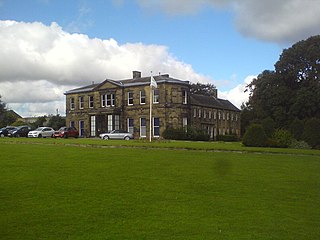
Farnley Hall is a stately home in Farnley, west Leeds, West Yorkshire, England. It is a grade II listed building. It was built in Elizabethan times by the Danbys. The manor is recorded in the 1086 Domesday Book as Fernelei, so it is probable that this house was a replacement for earlier medieval structures.

Sir Francis Windebank was an English politician who was Secretary of State under Charles I.
Sir John Danvers was an English courtier and politician who was one of the signatories of the death warrant of Charles I.
Christopher Wandesford was an English administrator and politician who sat in the House of Commons between 1621 and 1629. He was Lord Deputy of Ireland in the last months of his life.

Elizabeth Cary, Viscountess Falkland was an English poet, dramatist, translator, and historian. She is the first woman known to have written and published an original play in English: The Tragedy of Mariam. From an early age, she was recognized by her contemporaries as an accomplished scholar.

Theobald Dillon, 1st Viscount Dillon, was an Irish military commander and adventurer. He held extensive lands in eastern Connacht and north-western Leinster, some acquired by sharp practices. He was a loyal supporter of Elizabeth I of England in her Irish wars.

Elizabeth Savage, Countess Rivers and Viscountess Savage was an English courtier and a Royalist victim of uprisings during the English Civil War.
Francis Constable was a London bookseller and publisher of the Jacobean and Caroline eras, noted for publishing a number of stage plays of English Renaissance drama.
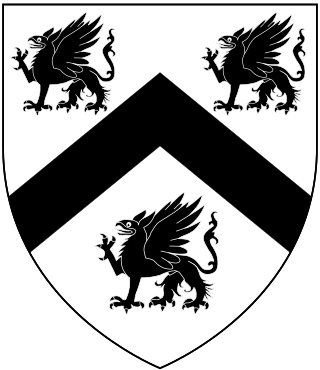
Thomas Finch, 2nd Earl of Winchilsea was an English peer and Member of Parliament.
Thomas Belasyse, 1st Viscount Fauconberg, styled Baron Fauconberg between 1627 and 1643 and Sir Thomas Belasyse, 2nd Baronet between 1624 and 1627, was an English politician who sat in the House of Commons at various times between 1597 and 1624 and was raised to the peerage in 1627. He was an ardent supporter of the Royalist cause in the English Civil War.
Edward Parker, 12th Baron Morley was an English peer, Lord of Morley, Hingham, Hockering, &c., in Norfolk, the son of Henry Parker, 11th Baron Morley and Lady Elizabeth Stanley. His second daughter was Frances Danby.
Sir Patrick Barnewall or Barnwall, was the eldest son of Sir Christopher Barnewall of Turvey House, Grace Dieu Abbey, and Fieldston. Christopher in turn was the son of the elder Sir Patrick Barnewall, who in 1534 was made Serjeant-at-law (Ireland) and Solicitor-General for Ireland, and in 1550 became Master of the Rolls in Ireland. Patrick's mother was Marion Sherle, daughter of Richard Sherle of Shallon, County Meath: after his father's death, she remarried the prominent judge Sir Lucas Dillon. She died in 1607.
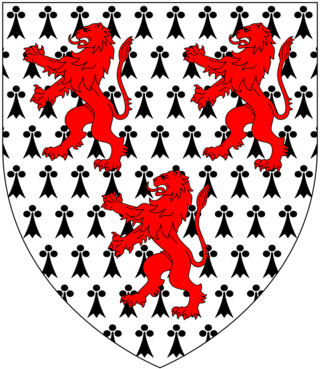
Sir George Chudleigh, 1st Baronet, of Ashton, Devon, was an English landowner and politician, who sat in the House of Commons at various times between 1601 and 1625. He had close family connections to a group of Devon Presbyterians, including Sir William Strode.

Edward Fraunceys was an English politician who sat in the House of Commons at various times between 1597 and 1626. His career was hampered by his marriage into an openly recusant family.
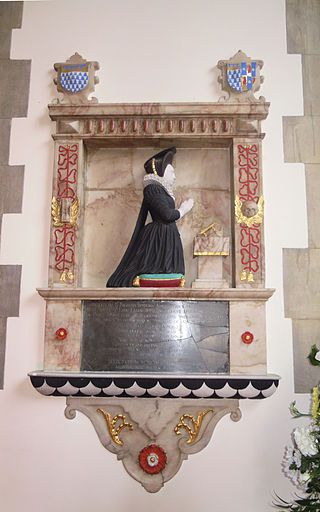
Sir Richard Tichborne, 2nd Baronet was an English politician who sat in the House of Commons from 1597. He was a Royalist commander in the English Civil War.
Thomas Fairfax, 1st Viscount Fairfax of Emley JP was an English landowner and politician who sat in the House of Commons at various times between 1601 and 1626. He was created Viscount Fairfax in the Peerage of Ireland in 1629. He "erected a mansion on Bishophill (York) early in Elizabeth's reign".
Sir Christopher Danby MP JP, of Farnley, Masham, and Thorp Perrow, Yorkshire, of St. Paul's Cray, Kent, and of Kettleby, Lincolnshire, and of Nayland, Suffolk, was an English politician.
Nathaniel Bladen was an English barrister who was Steward to the Earl of Danby for twenty years as Danby rose to be the most powerful politician of the day before he was engulfed in the Popish Plot and incarcerated in the Tower of London.
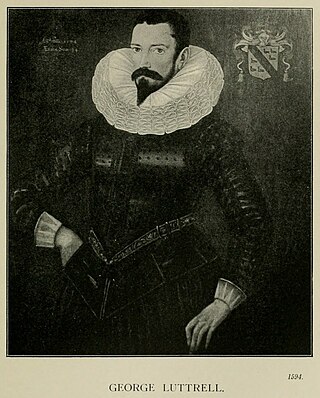
George Luttrell was an English politician from Dunster Castle in Somerset. In 1582 and 1584 he sat in the House of Commons of England as a Member of Parliament (MP) for his family's pocket borough of Minehead.
Sir William Wentworth (1562-1614) was an English landowner.
References
- 1 2 "Sir Abstrupus Danby, Of an Ancient Yorkshire Family - Twickenham Museum". www.twickenham-museum.org.uk. Retrieved 2023-05-22.
- 1 2 3 4 5 Cliffe, J. T. (2004-09-23). Danby family (per. 1493–1667), gentry. Vol. 1. Oxford University Press. doi:10.1093/ref:odnb/71867.